In the automotive industry, it’s not just about propulsion and driving dynamics. Sometimes, it’s the subtle things that make a difference – especially when it comes to sustainability. Here’s the story of a cardboard box that goes on a world tour.
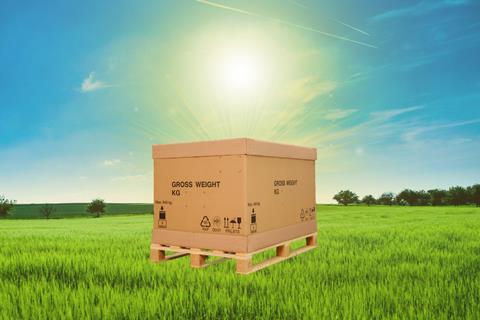
A significant challenge in global logistics is harmonising different packaging systems for intercontinental transport. In Europe, Euro pallets are standard, while in China and America, shipping containers of other sizes are often used. This variety of dimensions often hampers efficient transport and load capacity maximisation. The BMW Group recognised early on that packaging logistics holds enormous potential for efficiency and sustainability. In overseas shipments of automotive parts between Europe and international production sites from China to North America, the Bavarian car manufacturer is implementing innovative solutions that not only protect the environment but also save money.
Why are the BMW Group and its partners now stacking with PAL973?
At the centre of this development is the unassuming PAL973, a single-use paper box developed by BMW in collaboration with process partners: Project Oversea-Box! At first glance, it may look like an ordinary cardboard box, but behind this simple exterior lies a sophisticated system optimising overseas shipping.
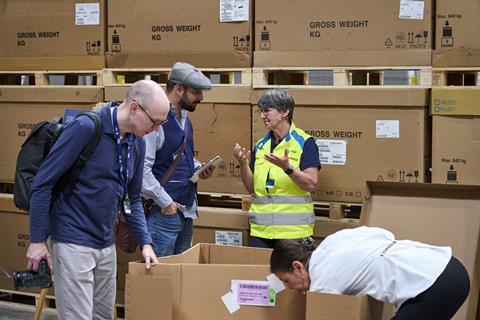
Sabine Eller, Project Manager for Disposable Packaging at BMW Group Logistics in Garching near Munich, is confident: “When we talk about packaging logistics at the BMW Group, we can’t overlook our PAL973 in overseas shipping.” The enthusiasm in her voice is evident when she talks about the benefits of this innovation. The PAL973 is the result of a simple yet brilliant idea: Why not create a box that fits perfectly in a 40-foot shipping container? The result is a package that can be stacked three times on top and three times side by side. This seemingly simple arrangement maximises container space utilisation and provides optimal stability for the safe transport of sensitive components for automotive production.
“We have already saved on shipping containers in parts supply”
The PAL973 embodies the spirit of sustainability that runs through BMW’s entire logistics chain. Made from recycled corrugated cardboard, it is not only lightweight and durable but also fully recyclable. After use, it can easily be reintroduced into the material cycle – ideal for the circular economy in the automotive industry. “We’ve already saved on shipping containers when sending our parts,” says Sabine Eller happily. At a time when the cost of a 40-foot container has more than tripled since the end of 2023, every saved container is worth its weight in gold. The reasons for these price increases are varied, ranging from rerouting due to conflicts in the Red Sea to general disruptions in the global supply chain.
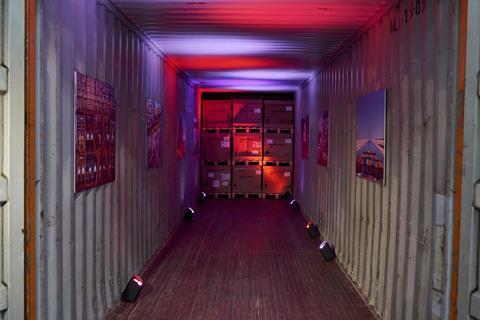
Ergonomics in the workplace: when the box serves people
With the introduction of the PAL973, BMW scores not only in sustainability statistics but also with the people who work with these packages daily. The PAL973 has a clever lift flap that allows employees to ergonomically access contents without the need to lift parts out of the box – a small but significant improvement for daily work.
New Project: 100 Percent Recycled Paper Material for Corrugated Cardboard
The development and implementation of the PAL973 also exemplifies global collaboration in the automotive industry. In Mexico, BMW works closely with the Puebla-based company Tri-Wall, a long-standing packaging partner. This partnership has proven particularly valuable for the current pilot project. BMW is not resting on the success of the PAL973.
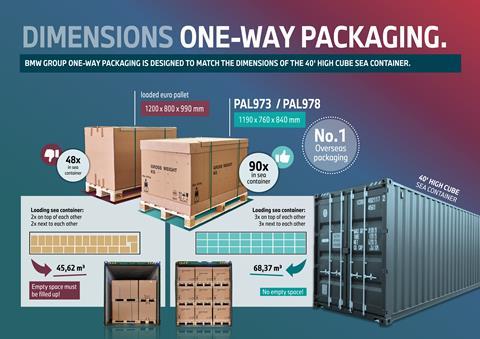
The company already has its sights set on the next steps toward sustainability: a promising project researching material replacement with 100 percent recycled paper for corrugated cardboard rings. These initiatives aim not only to further increase efficiency but also to have a significant impact on the company’s environmental footprint. Despite all successes, challenges remain. The availability of high-quality recycled materials in sufficient quantities and ensuring their processing quality remain critical issues. BMW continually invests in research and development to promote innovative solutions.
Project “Supply Chain Next”: on the way to the perfect supply chain?
Another focus is the integration of technological innovations into the logistics chain. A current example of this development is the “Supply Chain Next” project, launched at BMW’s plant in Mexico. Raul Gamboa, Head of Production Control, Production System and Logistics at BMW’s San Luis Potosí plant, explained during the “Responsibility Days 2024” at the Mexican production site what lies behind the sophisticated system: “We use artificial intelligence to optimise the supply chain and real-time dashboards for 360-degree monitoring of all logistics processes.”
”At a time when the cost of a 40-foot container has more than tripled since the end of 2023, every saved container is worth its weight in gold”
- Sabine Eller, Project Manager for Disposable Packaging at BMW Group
These dashboards allow logistics experts to respond quickly to changes. Is a delivery delayed? No problem; the system automatically suggests alternatives. Is a shortage of a particular component imminent? The AI has already developed three possible solutions, with the algorithm learning continuously and becoming more precise with each response.
Read: Raul Gamboa on how BMW is increasingly boosting efficiencies through Digitalisation
Digital Packaging Handbook Supports Suppliers with Instructional Videos
Back to Sabine Eller. She emphasises, “BMW does not see packaging innovations as exclusive assets but as contributions to advancing the entire industry.” Therefore, the company publishes the PAL973 in print and digital publications – also with the goal of generating interest and possibly new collaboration inquiries. This openness is also evident in BMW’s cooperation with various suppliers. After the pilot phase, BMW Group’s internal guidelines mandate the inclusion of multiple suppliers to ensure security of supply and competition.
”True sustainability can only be achieved through holistic thinking – from material selection to production logistics to recycling”
To ensure the lasting quality of packaging, BMW relies on modern communication tools. The digital packaging handbook, enriched with images and instructional videos, supports suppliers in correctly implementing the OEM’s guidelines. This interactive format allows high flexibility with changing requirements and has proven to be a valuable tool for corporate communication.
More BMW sustainability stories
- BMW embraces Design for Circularity to lead in sustainability
- BMW using etrucks for inbound battery deliveries to Leipzig plant
- BMW to increase recycled packaging as part of sustainability drive
- BMW’s Hendrik Lang on achieving sustainable supply chains
Conclusion: Think more out-of-the-box applications!
The story of the PAL973 and sustainable packaging solutions at BMW demonstrates how innovation and sustainability can go hand in hand. What appears to be a simple cardboard box at first glance turns out to be a well-thought-out system optimising the global logistics chain. Developing such solutions is more than just a contribution to environmental protection. It’s a necessity in a world where resource efficiency and cost optimisation are increasingly important. True sustainability can only be achieved through holistic thinking – from material selection to production logistics to recycling.
The PAL973 may be just a small component in the larger puzzle of automotive production, but it symbolises an important paradigm shift: moving away from a disposable mentality towards a circular mindset that conserves resources while offering economic benefits. At a time when the automotive industry faces immense challenges – whether through the transition to electromobility or geopolitical tensions – the example of the PAL973 shows that enormous innovation potential lies even in seemingly minor areas like packaging logistics. The journey towards greater sustainability in the automotive industry is far from over. It will be exciting to see what further innovations the industry will bring – perhaps from a corner where it’s least expected.


























![Global[1]](https://d3n5uof8vony13.cloudfront.net/Pictures/web/a/d/s/global1_726550.svgz)




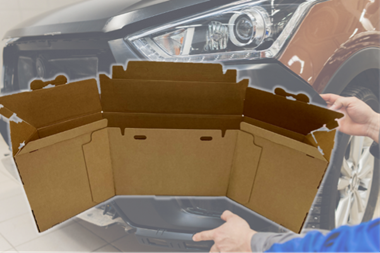

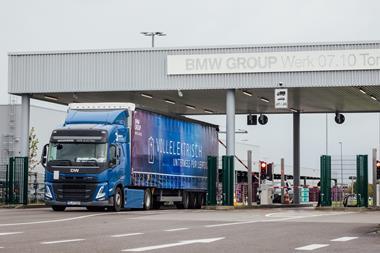
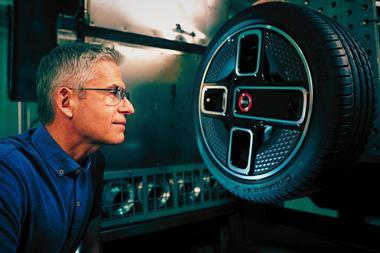
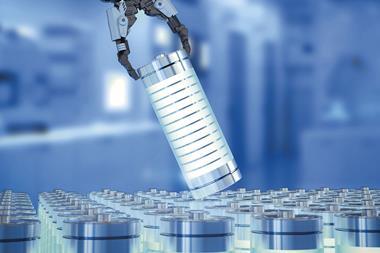
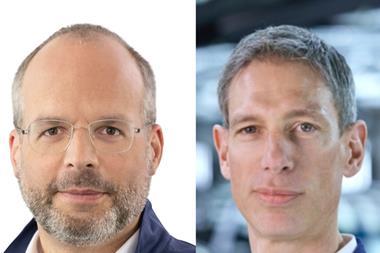



No comments yet